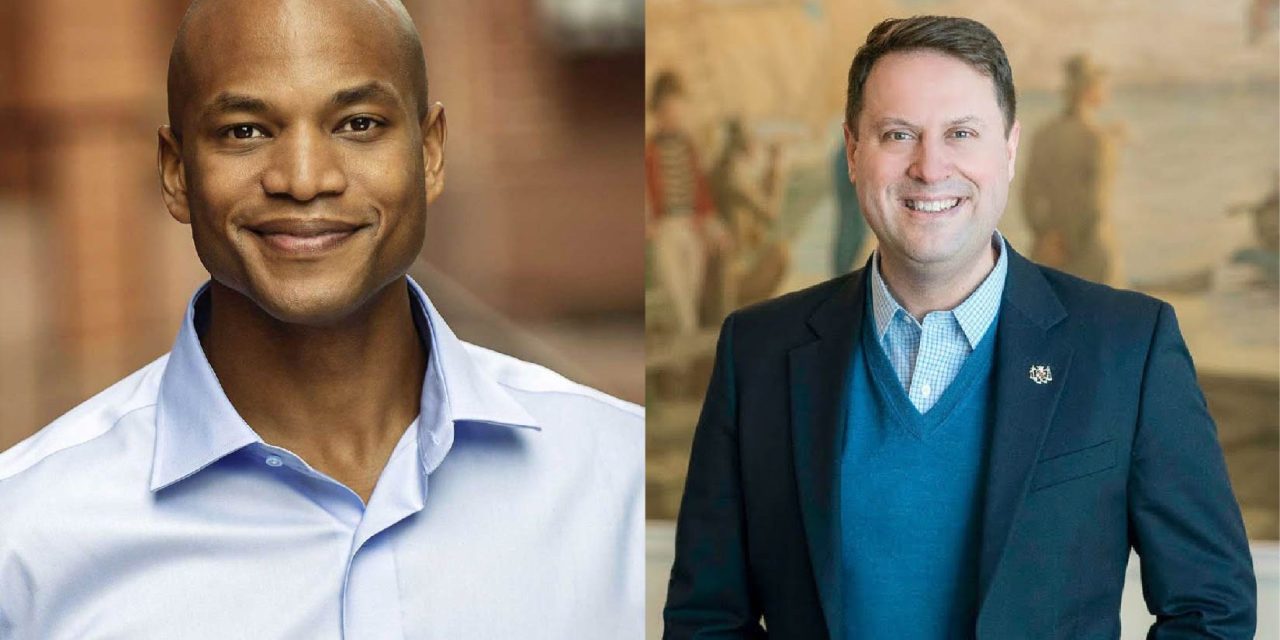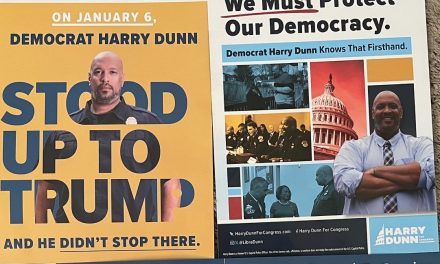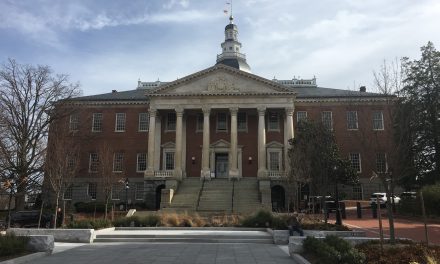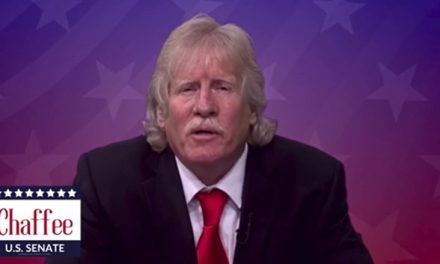By Emmett Gartner and Timothy Elijah Dashiell
ANNAPOLIS—With just weeks before Maryland voters go to the polls and days before mail-in voting begins, Democratic nominee Wes Moore and his Republican opponent, Dan Cox, have begun campaigning in earnest after being relatively dormant over the past month.
Each made courtesy appearances at the Maryland State Fair, a Labor Day parade in Gaithersburg, the streets of West Baltimore during the city water system’s E. Coli crisis and separate events commemorating the 21st anniversary of the Sept. 11 terrorist attacks. But it’s only recently that they have been hitting the streets to consistently talk with voters.
Moore, who spent much of the previous weeks fundraising, had daily events events for a change, beginning with a Q&A at a town hall with the NAACP in Annapolis, later a meeting to talk and pick up an endorsement with union members in District Heights, an appearance to hand out food and clothing at a non profit in West Baltimore and attendance at an upscale environmental dinner in downtown Baltimore.
Cox, meanwhile, spoke Wednesday night to the Hispanic Pastors Alliance in Silver Spring. He celebrated El Salvador’s Independence Day in Gaithersburg and the previous week traveled across the day to campaign in Republican-friendly Allegany County, visiting businesses and schools before and attending a GOP picnic.
At those events Cox stressed his core messages of lowering taxes, increasing parental control in school curriculum and improving community safety. He received a warm reception during most stops.
Dave Caparole, owner of a Cumberland bakery that Cox made his third stop after visiting a local radio station and a coffee shop.
“I just think areas like ours and further west sometimes feel left out, or that our voice doesn’t matter in Annapolis,” Caporale said. “We want to honor our public officials that come through here and see us and hear what we have to say.”
Larry Jackson, 57, owner of Hobbies Plus in Cumberland, was less excited about Cox’s visit.
“It’s cool that he visited and all, but personally, I refuse to back someone that supported all those crazy Trump theories and views. January 6 was one of the saddest days in my life as an American,” said Jackson, a “former Republican” who said he supported Republican Maryland Gov. Larry Hogan in 2014 and 2018.
Cox was at the rally outside of the U.S. Capitol building that later evolved into an insurrection on Jan. 6, 2020. He has been endorsed by former President Donald Trump.
Moore has made broad promises to a wide range of constituencies, with a slogan of “leave no man behind,” the inference is that he will protect all Maryland residents and not one class.
Moore said he will push to protect union workers salaries and rights, begin implementing Climate Solutions Now Act of 2022 passed in the last General Assembly, provide support for previously incarcerated citizens and expand education opportunities before and after kindergarten.
He has received high praise, if not rock-star status, at some of his events. During his meeting with the union, workers profoundly wore their recently-made “Ironworkers Want Wes Moore T-shirts.
At the NAACP event, attendees anxiously snapped photos and took videos of Moore as he entered the room.
“He’s not even governor yet, and we believe in him,” Virginia Wood said. “We trust him. He’s who we want representing us.”
The clearest contrast of the opponents came into focus this week during a virtual forum Wednesday afternoon hosted by the nonprofit Maryland Family Network. Each spoke separately for an hour and answered questions selected by event organizers.
Cox outlined policies to cut taxes, invest in charter schools, create economic opportunity zones in urban areas and expand access to capital and grants for struggling child care businesses.
Cox highlighted his efforts to reopen Maryland child care centers at the beginning of the COVID-19 pandemic and railed against the current state of taxation and inflation in Maryland, which he labeled “out of control.”
To remedy these economic issues, Cox suggested cutting property, income and retirement taxes to attract new Maryland residents, so existing ones could use their savings to pay for child care needs.
“I would like to eliminate our income tax to be more like Florida, where there’s no income tax,” Cox said. “That will attract many people.”
Cox said he would change the composition of the Maryland State Board of Education, a 14 member body appointed by the governor that sets educational policies.
“These individuals need to listen to parents and they need to have the credentials necessary and the constituency at heart, because that’s who they’re serving,” he said.
When asked about paid family medical leave, Cox said he supported the idea even though he voted against the Time to Care Act of 2022, a paid family medical leave program that passed the General Assembly this year despite the governor’s veto.
Cox claimed it was an “unfunded mandate.”
“With an unfunded mandate, you won’t actually provide more childcare access or time at home with the child,” he said. “You’ll actually cancel jobs.”
Following Cox, Moore stressed the importance of supporting public schools and community programs. Moore said he would reinstate the Governor’s Office for Children and Families.
“In our administration, we are going to reprioritize this office because it is important that we have the voice of families and the voice of children, not just at the table but centered in the conversation on all policies.” Moore said.
Moore said he wanted to institute free pre-kindergarten for all children as well as apprenticeship and trade programs in schools. He said he would support child care programs through tax credits to help subsidize the service for low-income families.
He also said he wanted to see the state’s minimum wage increase to $15 in 2023 instead of 2025, as it is currently scheduled to do.
Political experts said as the campaigns head into the stretch run, they do not see a plausible path to victory for Cox.
Mileah Kromer is the director of the Sarah T. Hughes Center for Politics at Goucher College, which conducts the Goucher College Poll. Kromer said Cox has not created a coalition of Independent and Democratic voters to go along with the Republican base that Hogan used to win elections in 2014 and 2018.
“Even with a robust turnout among the Republican base, it’s just not enough,” she said.
She also noted that even with Cox’s uptick in campaign events, which help drive media attention and get his name out, Cox’s success in November will rely on television and radio ads, and he is far behind Moore in campaign fundraising.
According to their most recent campaign finance reports, Moore had $1.3 million in cash on hand compared to Cox’s $130,371 as of Aug. 23.
Quincy Gamble, a Democratic operative who has worked with former President Barack Obama and former Secretary of State Hillary Clinton during their campaigns, said Moore’s campaign chest may be insurmountable for Cox.
“Wes can only be in one place at a time,” Gamble said. “So, having money allows you to replicate yourself, whether through TV or signage across Western Maryland or on the Eastern Shore.







Recent Comments